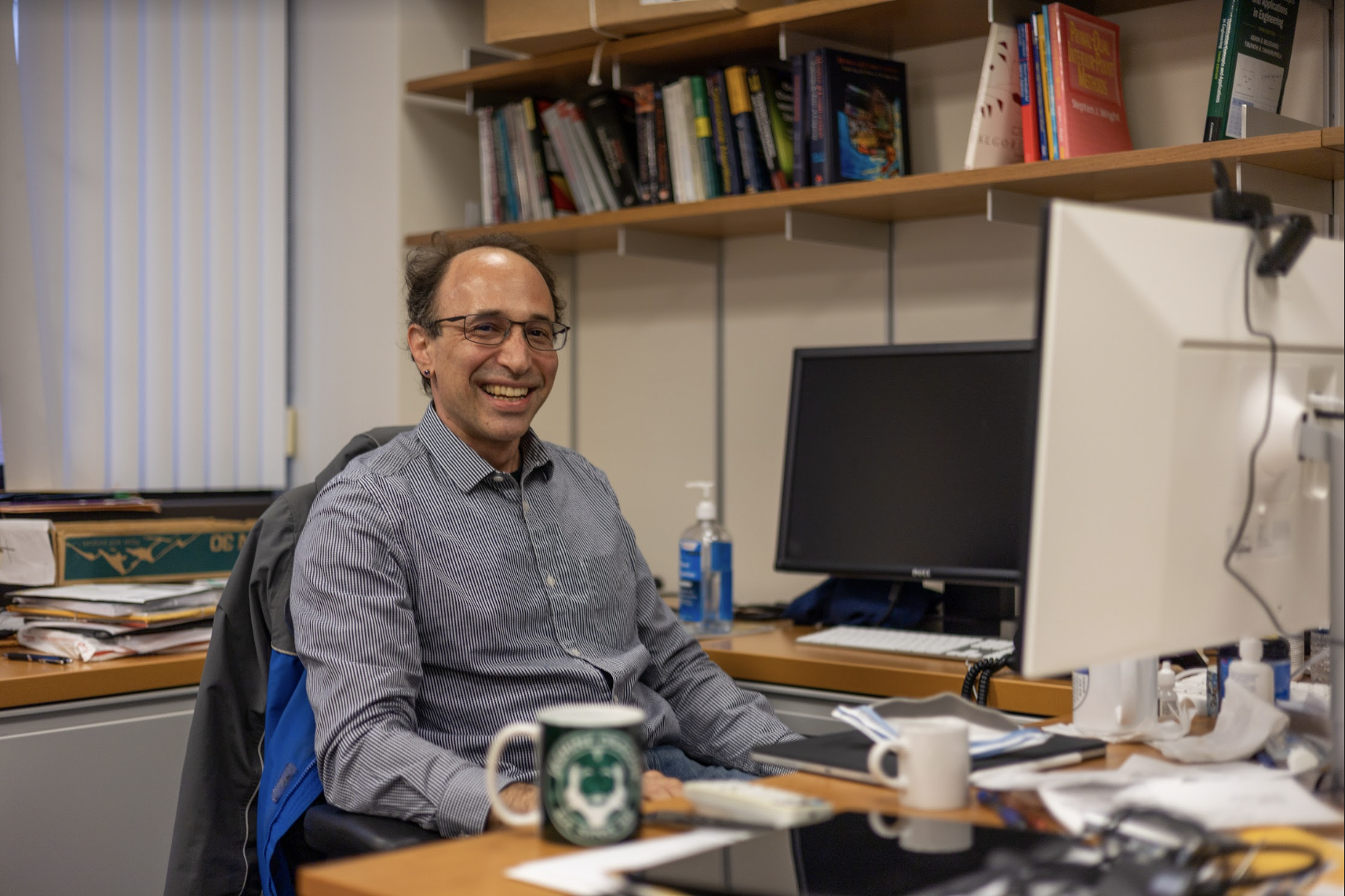Spielman awarded $3 million Breakthrough Prize in Mathematics
Sterling Professor of Computer Science Daniel Spielman will be recognized by the “Oscars of Science” for his pioneering research in algorithms and mathematics at the 2023 ceremony.

Jacob Liao, Contributing Photographer
Daniel Spielman ’92 wasn’t expecting to win 3 million dollars.
But the “Oscars of Science” called, and the Sterling Professor of Computer Science and Statistics and Data Science was informed that he had won the 2023 Breakthrough Prize in Mathematics, one of the most prestigious awards in his field.
The Breakthrough Prizes, awarded on Sept. 22, were established in 2012 by a group of entrepreneurs and philanthropists including Priscilla Chan and Mark Zuckerberg. Laureates in the three categories — mathematics, fundamental physics and life sciences — each receive a $3 million award.
“I didn’t see it coming because the Breakthrough Prize has always gone to people who are much more on the pure side than I am, and I’m really, you know, part time pure mathematician, part time computer scientist,” Spielman told the News.
Spielman was recognized for his contributions to theoretical computer science and mathematics, including in spectral graph theory, the Kadison-Singer problem, numerical linear algebra, optimization and coding theory, according to the prize’s website.
The professor is no stranger to acclaim; he was awarded the 2008 Gödel Prize with collaborator Shang-Hua Teng for work on smoothed analysis of algorithms. Their work established a novel mathematical framework to better study the behavior of algorithms in the real world, beyond traditional methods.
In 2014, Spielman, along with collaborators Adam Marcus and Nikhil Srivastava GRD ’10, received the George Pólya Prize for their work on the proof of the Kadison-Singer conjecture, a long-standing unsolved problem with far-reaching applications in areas such as network science and quantum physics.
In 2015, Spielman and Teng once again shared the Gödel Prize for a series of papers on nearly-linear-time Laplacian solvers, a set of algorithms that helped resolve an outstanding open problem in linear algebra.
Spielman also holds a secondary appointment in Mathematics; on Oct. 14, he will launch Yale’s Kline Tower Institute, a data science initiative, and serve as its director.
“I’ve always liked pure math, but the things I’m most excited about are usually motivated by an application somewhere,” Spielman said. “For me, the strangest thing is, there’s a lot of mathematics that I read that to me is very obviously useful, or in an applied sense, but the people who did it, don’t think of it that way. It was interesting to them for entirely different reasons.”
Teng, a long-time collaborator and close friend of Spielman, recounted the latter as having been a star mathematician ever since his years as an undergraduate at Yale.
Moreover, Teng commended Yale’s role in producing a wonderful scholar who is also an eloquent writer — sometimes found lacking in academia.
“Dan has three things that set him apart as a scientist: excellent taste in choosing problems, remarkable problem-solving skills and persistence,” Teng said. “Beyond answering existing open questions, he is a thinker who can envision new emerging questions at the frontiers of science to guide the coming generations.”
Spielman will formally accept the prize at a gala award ceremony, which traditionally features casts of performers and presenters. Notable attendees of prior ceremonies have included figures such as Pierce Brosnan, Lupita Nyong’o DRA ’12 and Lionel Richie.
Marco Pirazzini GRD ’27 described Spielman’s colleagues’ reaction to the award announcement as merry, with a feeling that few other scientists — or people — could have been more worthy of such an accolade.
“We joked about it during our meeting, but then, it was business as usual,” Pirazzini said. “The best part about Dan is that the only thing he really cares about is the math. He is not after any accolades. He just likes to think about problems.”
Spielman graduated summa cum laude from Yale in 1992, with exceptional distinction in Computer Science.
Correction, Oct. 6: This story has been updated with Spielman’s correct title.







